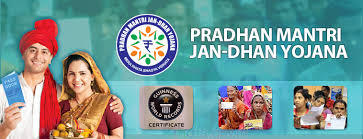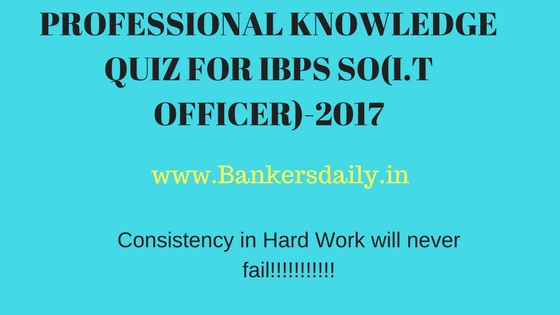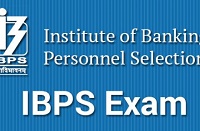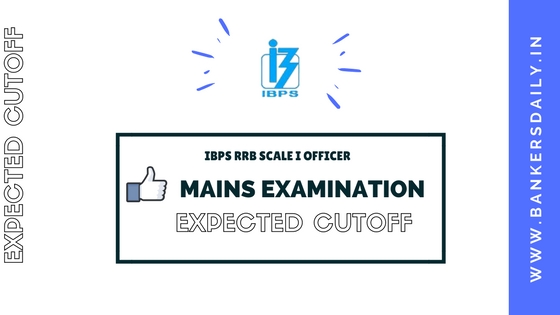IMPORTANT BANKING TERMS-ABBREVIATION PART-III
IMPORTANT BANKING TERMS-ABBREVIATION PART-III
1.AEPS
Aadhaar is a 12-digit unique identity number issued to all Indian residents based on their biometric and demographic data. The data is collected by the Unique Identification Authority of India (UIDAI), a statutory authority established in January 2009 by the Government of India, under the jurisdiction of the Ministry of Electronics and Information Technology, following the provisions of the Aadhaar (Targeted Delivery of Financial and other Subsidies, benefits and services) Act, 2016.
Funds Transfer limit:
- Banks define limit. No limit for RBI.
Key people
- Chairman: J. Satyanarayana,
- CEO: Dr. Ajay Bhushan Pandey,
- Launched: 28 January 2009
2.BRBNMPL
Bharatiya Reserve Bank Note Mudran Private Limited (BRBNMPL) is one of the subsidiaries of Reserve Bank of India which prints bank notes (Indian rupees) for Reserve Bank of India (RBI). It was established in 1995 to address the demand of bank notes. It has two presses in Mysore and Salboni. The company made a world record by printing more than 20000 million pieces of bank notes in financial year 2016-17, The company has own design cell. It has the capability to print all the denominations of Indian bank Notes. The other two bank note presses of SPMCIL are Currency Note Press Nashik Road, and Bank Note Presses which print bank notes in small quantities.
- IMPS
Immediate Payment Service (IMPS) is an instant real-time inter-bank electronic funds transfer system in India. IMPS offers an inter-bank electronic fund transfer service through mobile phones. Unlike NEFT and RTGS, the service is available 24/7 throughout the year including bank holidays.
It is managed by the National Payments Corporation of India (NPCI) and is built upon the existing National Financial Switch network. In 2010, the NPCI initially carried out a pilot for the mobile payment system with 4 member banks (State Bank of India, Bank of India, Union Bank of India and ICICI Bank), and expanded it to include Yes Bank, Axis Bank and HDFC Bank later that year.
- MPC
The Monetary Policy Committee of India is a committee of the Reserve Bank of India that is responsible for fixing the benchmark interest rate in India. The meetings of the Monetary Policy Committee are held at least 4 times a year and it publishes its decisions after each such meeting.
The committee comprises six members – three officials of the Reserve Bank of India and three external members nominated by the Government of India. The Governor of Reserve Bank of India is the chairperson ex officio of the committee.
- BBPS
Bharat Bill Payment System (BBPS) is an integrated bill payment system in India offering interoperable and accessible bill payment service to customers through a network of agents, enabling multiple payment modes, and providing instant confirmation of payment.
National Payments Corporation of India (NPCI) will function as the authorised Bharat Bill Payment Central Unit (BBPCU), which will be responsible for setting business standards, rules and procedures for technical and business requirements for all the participants. NPCI, as the BBPCU, will also undertake clearing and settlement activities related to transactions routed through BBPS. The Committee headed by RBI Executive Director G. Padmanabhan was set up in 2013 to study the feasibility of implementation of Giro based Payment Systems.
- NFS
National Financial Switch (NFS) is the largest network of shared automated teller machines (ATMs) in India. It was designed, developed and deployed by the Institute for Development and Research in Banking Technology (IDRBT) in 2004, with the goal of inter-connecting the ATMs in the country and facilitating convenience banking. It is run by the National Payments Corporation of India (NPCI).
- FCNR
FCNR deposits stands for Foreign Currency Non-Repatriable account deposits. This is a Fixed Deposit Foreign Currency account and not a savings account. Deposits in this account can be made in any of the major currencies like US Dollar, UK Pound, Canadian Dollar, Deutsche Mark, Japanese Yen and Euro.
- NRO
In India banking terminology, the term Non-Residential Ordinary or NRO Account refers to funds deposited with an Indian financial institution opened by an Indian national with the intention of becoming a Non-Resident Indian or NRI. An NRO account is kept in Indian rupees and cannot be converted and repatriated into foreign currency.
- NRE
In India banking terminology, the term Non-Resident External or NRE Account refers to funds deposited with a financial institution that allows for the efficient conversion and transfer of Indian and foreign currency both within and outside of India.
- LEI
A Legal Entity Identifier (or LEI) is a 20-character identifier that identifies distinct legal entities that engage in financial transactions. Natural persons are not required to have an LEI; they’re eligible to have one issued, however, but only if they act in an independent business capacity. The LEI is a global standard, designed to be non-proprietary data that is freely accessible to all.
- NSE
The National Stock Exchange of India Limited (NSE) is the leading stock exchange of India, located in Mumbai. The NSE was established in 1992 as the first demutualized electronic exchange in the country. NSE was the first exchange in the country to provide a modern, fully automated screen-based electronic trading system which offered easy trading facility to the investors spread across the length and breadth of the country. Vikram Limaye is Managing Director & Chief Executive Officer (MD & CEO) of NSE.
NSE was set up by a group of leading Indian financial institutions at the behest of the government of India to bring transparency to the Indian capital market. Based on the recommendations laid out by the Pherwani committee, NSE has been established with a diversified shareholding comprising domestic and global investors.
- BSE
The Bombay Stock Exchange (BSE) is an Indian stock exchange located at Dalal Street, Mumbai (formerly Bombay).
Established in 1875, the BSE (formerly known as Bombay Stock Exchange Ltd. is Asia’s first stock exchange. It claims to be the world’s fastest stock exchange, with a median trade speed of 6 microseconds, The BSE is the world’s 12th largest stock exchange with an overall market capitalization of more than $ 2 Trillion as of July, 2017.
- FCNR
FCNR deposits stands for Foreign Currency Non-Repatriable account deposits. This is a Fixed Deposit Foreign Currency account and not a savings account. Deposits in this account can be made in any of the major currencies like US Dollar, UK Pound, Canadian Dollar, Deutsche Mark, Japanese Yen and Euro.
- ARC
The Securitisation and Reconstruction of Financial Assets and Enforcement of Security Interest Act, 2002 (also known as the SARFAESI Act) is an Indian law. It allows banks and other financial institution to auction residential or commercial properties to recover loans. The first asset reconstruction company (ARC) of India, ARCIL, was set up under this act.
Under this act secured creditors (banks or financial institutions) have many rights for enforcement of security interest under section 13 of SARFAESI Act, 2002. If borrower of financial assistance makes any default in repayment of loan or any instalment and his account is classified as Nonperforming Asset by secured creditor, then secured creditor may require before expiry of period of limitation by written notice to the borrower for repayment of due in full within 60 days by clearly stating amount due and intention for enforcement.
- NPA
A Non-performing asset (NPA) is defined as a credit facility in respect of which the interest and/or instalment of Bond finance principal has remained ‘past due’ for a specified period of time. NPA is used by financial institutions that refer to loans that are in jeopardy of default the so called NPL. Once the borrower has failed to make interest or principal payments for 90 days the loan is considered to be a non-performing asset. Non-performing assets are problematic for financial institutions since they depend on interest payments for income.
Click below for previous Abbreviation
IMPORTANT BANKING TERMS-ABBREVIATION PART-I
IMPORTANT BANKING TERMS-ABBREVIATION PART-II
Click the link given below for more information:
ARTICLES
Click the link given below for Current Affairs:





